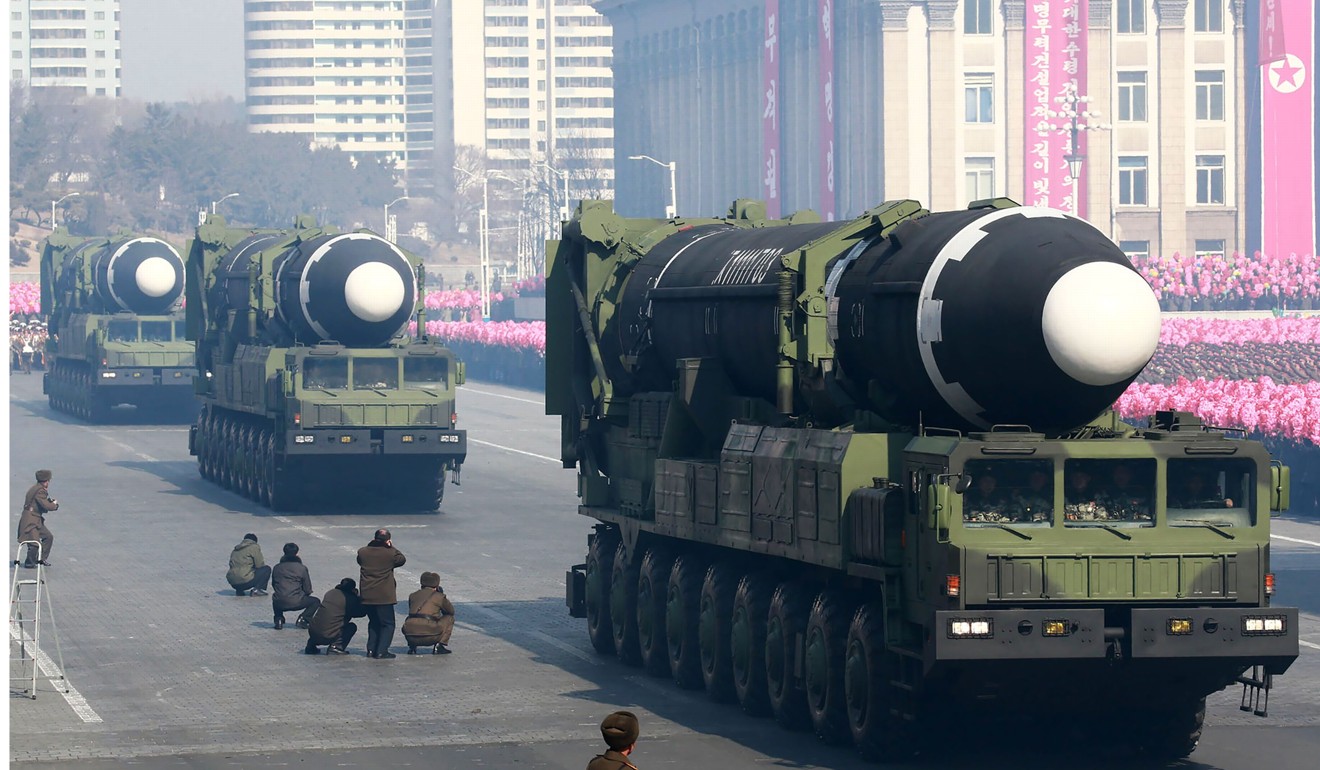
Japanese broadcaster apologises for false North Korean missile launch report
- The news alert, sent out 22 minutes after midnight, was meant for training purposes and was ‘not true’, the broadcaster said
- It came as Washington and its East Asian allies have been on tenterhooks for Pyongyang’s threat of a ‘Christmas gift’ over the festive period

Japanese public broadcaster NHK has apologised for sending a news bulletin on Friday that incorrectly reported North Korea had launched a missile which fell into waters east of the archipelago nation.
The news alert came as the United States and its East Asian allies have been on tenterhooks after Pyongyang’s warning this month of a “Christmas gift” for Washington in what experts took to mean a possible long-range missile test.

The NHK bulletin, sent out 22 minutes after midnight on its website, read: “North Korean missile seen as having fallen into seas about 2,000km east of Hokkaido’s Cape Erimo”, suggesting a flight path over Japanese territory.
At 2:28am, NHK, which is frequently criticised for being a mouthpiece for Prime Minister Shinzo Abe's government, issued an apology on its website, explaining that the text was meant for training purposes and was “not true”.
“We apologise to our viewers and the public,” NHK said.
Warning citizens about disasters and security threats is one of the mandates for the publicly funded broadcaster, whose presenters regularly and frequently hold drills for earthquakes and other disaster coverage.
When North Korea did launch missiles that flew over Cape Erimo in Japan’s far north in 2017, warnings spread through sirens and government-issued “J-alerts” on millions of mobile phones throughout Japan, jolting some out of sleep.

NHK had also sent an erroneous news alert about a North Korean missile in error in January of last year.
North Korean leader Kim Jong-un had given the US until the end of the year to propose new concessions in talks over his country’s nuclear arsenal and reducing tensions between the adversaries.
Its last test of an intercontinental ballistic missile was in November 2017 when it fired a Hwasong-15, the largest missile it has ever tested. Pyongyang said the missile was capable of reaching all of the US.
Additional reporting by Deutsche Presse-Agentur